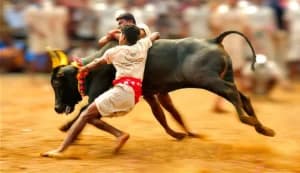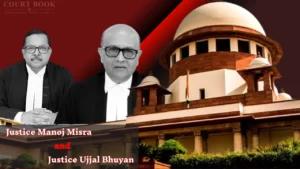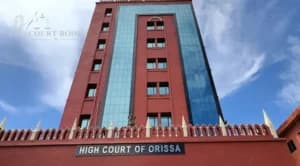The Supreme Court of India has reaffirmed the principle of moulding relief in civil suits, emphasizing that courts have the discretion to modify or shape the relief sought based on the evolving circumstances of a case. The ruling clarifies that if the relief originally claimed cannot be granted or if granting an alternative relief would ensure substantive justice, the court is empowered to adjust the relief accordingly rather than dismissing the suit outright.
"The concept of moulding of relief refers to the ability of a court to modify or shape a relief sought by a party in a legal proceeding based on the circumstances of the case and the facts established after a full-fledged trial. The principle enables the court to grant appropriate remedies even if the relief requested in the pleading is not exact or could not be considered by the court or changed circumstances have rendered the relief obsolete. The court aims that justice is served while taking into account the evolving nature of a case. The above road map is pursued by a court based on the notion of flexibility in relief, equitable jurisdiction, and is tempered by judicial discretion," the Supreme Court observed.
Read Also:- Supreme Court Orders Uttarakhand Government to Pay Rs.1 Crore Compensation to Family of Slain Doctor
Background of the Case
A bench comprising Justices Pankaj Mithal and SVN Bhatti was hearing an appeal concerning a property dispute. The property in question was originally owned by Padmini Chandrasekaran, who purchased it in a court auction in 1962. She later bequeathed it via a Will in 1975 to Vinayagamurthy and his children, with the administration of the estate being entrusted to a Trust.
However, a conflicting Will was executed by one Somasundaram Chettiar, who bequeathed the same property to his adopted son, Sarvothaman. Subsequently, Sarvothaman sold the property to third-party buyers (Defendants 3–6), despite the prior ownership claim by Padmini.
The Trust filed a suit before the Madras High Court seeking to declare the sale deeds executed by Sarvothaman in favor of the third-party buyers void. Additionally, the Trust sought possession of the property based on Padmini’s Will.
The Single Bench and Division Bench of the Madras High Court ruled in favor of the Trust by declaring the sale deeds void. However, instead of awarding possession to the Trust, the court moulded the relief by granting possession to Dr. H.B.N. Shetty, one of the executors of Padmini’s Will, for the benefit of Vinayagamurthy and his children. The court noted that the Trust itself did not have title to the property; rather, it was bequeathed to Vinayagamurthy and his children.
Aggrieved by this decision, the appellants approached the Supreme Court.
Read Also:- Supreme Court Ruling: Delay in Recording Witness Statements Not Always Fatal Under CrPC
The Supreme Court upheld the High Court's decision, emphasizing that the relief was moulded to ensure substantive justice and avoid unnecessary litigation.
"Simply because H.B.N. Shetty, who happened to be the trustee of the plaintiff trust, filed the suit, is it necessary for him to file another suit in order to get a decree for setting aside the sale? In my opinion, especially in the present facts and circumstances of the case, it is unnecessary to make him go in for another suit, after a lapse of eight years. After all, H.B.N. Shetty, the executor himself, is very aged (more than 80 years). As some of the executors passed away and some resigned, and when H.B.N. Shetty himself is very old, it may not be desirable to make him or another executor file another suit," the court stated.
The court relied on the precedent set in Shivanna vs B.S. Puttamadaiah (Dead) Through Lrs. (2023) SCC OnLine SC 1969, which laid down three essential conditions for moulding relief:
- The relief originally claimed has, by reason of subsequent events, become inappropriate or cannot be granted.
- Taking note of such subsequent events would shorten litigation and enable complete justice.
- The subsequent event is brought to the court’s notice promptly and in accordance with procedural law.
Applying these principles, the Supreme Court noted that requiring an aged executor to file a fresh suit would be against the interests of justice and would prolong unnecessary litigation.
Accordingly, the appeal was dismissed with a cost of Rs. 1,00,000/- payable to the Legal Aid Services Authority of the Madras High Court within four weeks from the date of judgment.
Case Title: J. GANAPATHA AND OTHERS VERSUS M/S. N. SELVARAJALOU CHETTY TRUST REP. BY ITS TRUSTEES AND OTHERS
Appearances:
For Petitioner(s) :Mr. R Basant, Sr. Adv.(argued by) Mr. M. A. Chinnasamy, AOR Mr. C Raghavendren, Adv. Mrs. C Rubavathi, Adv. Mr. Ch.leela Sarveswar, Adv. Mr. V Senthil Kumar, Adv.
For Respondent(s): R-1: Mr. Dama Seshadri Naidu, Sr. Adv.(argued by) Mr. V. Balaji, Adv. Ms. V. Pushpa, Adv. Mr. B. Dhananjay, Adv. Mr. Asaithambi Msm, Adv. Mr. Vinod K. Nair, Adv. Mr. Rakesh K. Sharma, AOR
R-2: Mr. Jayanth Muth Raj, Sr. Adv.(argued by) Mr. Vadivelu Deenadayalan, AOR Mr. Ashwin Kumar D.S., Adv. Mr. Ishan Roy Chowdhury, Adv.
R-5-6 Mr. P B Suresh, Sr. Adv.(argued by) Mr. Nikilesh Ramachandran, AOR Mr. Shubham Seth, Adv. Ms. Prakruti Malhotra, Adv. Mr. Rajneesh Gedamz, Adv.















